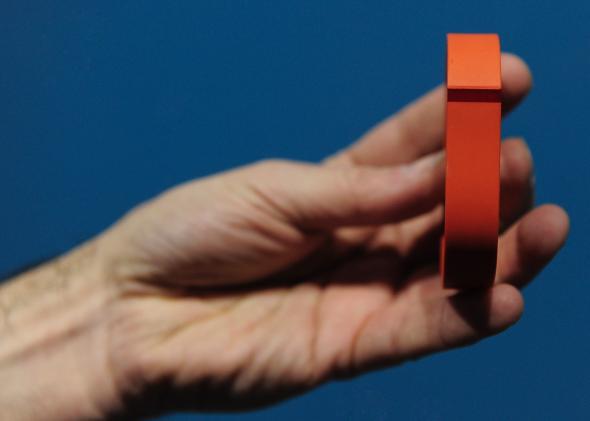It’s an ugly week in the fitness-bracelet industry. On Wednesday, Jawbone filed a strongly worded lawsuit against Fitbit in California State Court that accused its main rival in wearable tech of “systematically plundering” company secrets by poaching Jawbone employees. “In plain violation of the terms of Jawbone’s stringent confidentiality protections, the acts of the Defendants in this case bear the hallmarks of a carefully orchestrated plan to abscond with reams of proprietary and confidential information,” the suit alleges.
Why does Jawbone think Fitbit is playing dirty? Well, earlier this year, the suit claims, Fitbit recruiters contacted roughly 30 percent of Jawbone’s workforce and successfully brought over five employees. At some point, one unfortunate Fitbit recruiter also allegedly uttered a phrase that has become the refrain in Jawbone’s case: “Fitbit’s objective is to decimate Jawbone.” Anyway, in the days and weeks before their departures, the poached employees allegedly “gained access to and downloaded from their work computers information regarding Jawbone’s current and projected business plans, products and technology.” The downloaded files included supply-chain data and a Jawbone presentation titled “Playbook for the Future,” the lawsuit alleges. Jawbone claims its departing employees also used thumb drives and email to stow away files—“the informational equivalent of a gold mine,” Jawbone notes—for future use. Once they’d done that, the employees allegedly used computer cleaning tools and manual deletions to cover their tracks.
Jawbone’s lawyers are framing all of this as (a) malicious activity intended to “decimate” Jawbone and (b) a desperate effort by Fitbit to firm up its business strategy ahead of a planned initial public offering. Fitbit filed for an IPO in New York in early May and is reportedly looking to raise around $150 million. At the time, Fitbit said its sales soared to $745.4 million in 2014, nearly tripling from the previous year. Fitbit also said it sold 10.9 million devices in 2014 and made $132 million in profit. Despite this, Jawbone’s lawyers are asserting that “Fitbit and its management lacked the strategic direction, talent and expertise necessary to create a sustainable model for product growth and revenue in the future.” And so Jawbone claims Fitbit “sought to find what it was lacking internally by embarking on a systematic campaign to steal talent, expertise, strategic direction and highly confidential information from Jawbone concerning its current and future product and its market projections—and, in the process, ‘decimate’ its chief competitor.”
Jawbone is seeking a variety of financial damages in the suit in amounts to be determined at trial. It would like punitive and exemplary damages “in an amount appropriate to punish or set an example of Fitbit” and the former Jawbone employees. The company is also seeking relief from the court that would prevent the former Jawbone employees from disclosing any additional secrets to Fitbit and would prevent Fitbit from using the information it may have already obtained.
It’s worth noting that while Jawbone might be loudly voicing doubts about Fitbit’s IPO aspirations, Jawbone has also come under fire for its business and financial health. Jawbone is 16 years old and yet is still a startup. As a Fortune article observed in January, it also “says nothing about its finances, other than to acknowledge it doesn’t make money.” In August 2014, contract manufacturer Flextronics alleged in a suit against Jawbone that “Jawbone’s financial condition is perilous and currently insufficient to pay its debts.” Recently, it secured a $300 million loan from asset management firm BlackRock. Product-wise, Jawbone’s fortunes haven’t been looking much better—its new Up3 fitness tracker received lukewarm reviews.
Things at Fitbit haven’t been perfect either. A device Fitbit released in late 2013 was pulled a few months later after some users reported developing a skin rash from it; similar problems were reported with a new Fitbit wearable this February. Fitbit didn’t respond to a Slate request for comment but told the New York Times in a statement that it was “unaware” of possessing any confidential or proprietary information from Jawbone and that “as a pioneer and leader in the connected health and fitness market, Fitbit has no need to take information from Jawbone or any other company.” Perhaps, but with one exception: how to make rash-free devices.
